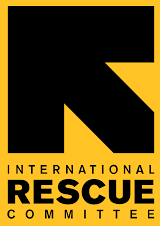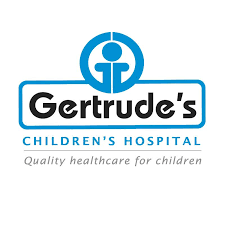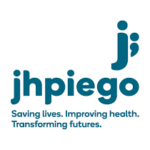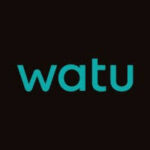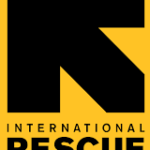
The International Rescue Committee (IRC) responds to the world’s worst humanitarian crises, helping to restore health, safety, education, economic wellbeing, and power to people devastated by conflict and disaster. Founded in 1933 at the call of Albert Einstein, the IRC is one of the world’s largest international humanitarian non-governmental organizations (INGO), at work in more than 50 countries and more than 25 U.S. cities helping people to survive, reclaim control of their future and strengthen their communities. A force for humanity, IRC employees deliver lasting impact by restoring safety, dignity and hope to millions. If you’re a solutions-driven, passionate change-maker, come join us in positively impacting the lives of millions of people world-wide for a better future.
The International Rescue Committee (IRC) is a leading humanitarian and development agency, supporting communities in transition in 40 countries. Simultaneously a global technical leader and proven implementer, IRC has shaped youth priorities and approaches at the national level and implemented programs at the community level since its founding in 1933. IRC has worked in Kenya since 1992, implementing highly effective programs in youth livelihoods, economic development, women empowerment, integrated healthcare, and nutrition.
Background
The MEAL Officer will report to the MEAL Manager. He/She will be responsible for working alongside the MEAL manager and MEAL Assistant in spearheading monitoring, evaluation, learning and reporting activities in the IRC Kakuma program by working with the Health, Nutrition, SGBV and Safe Programming programs to ensure that all activities are carried out and challenges addressed on time for overall project goal realization.
Major Responsibilities Minimum Qualifications:
- Supervision of M&E Systems and Tools in use.
- Liaise with the Kakuma west Sub County Monitoring and Evaluation team to avail all the MOH tools required for data collection and reporting in the facilities.
- Conduct continuous on job trainings to the program staff on the MOH and IRC tools utilization on an ongoing basis to ensure data collected meets the quality requirements.
- Conduct support supervisory visits to the facilities to ensure the data management systems are used effectively and take part in meetings aimed to improve the systems in place.
- Document any challenges reported by the users in regard to the usage of the data collection tools and share with the M&E manager.
- Monitoring and Evaluation
- Work closely with the MEAL manager to ensure presence of a robust monitoring plan in, developing monitoring and evaluation guidelines, frameworks and indicators for the projects action plan.
- Take lead in conducting regular data review meetings at the field office noting the actionable points and lessons learnt.
- Update data in the respective databases in use and provide information to the program staff on request.
- Participating actively in enforcing of quality assurance, quality control and quality improvement measures for all field programs intervention.
- Conduct routine data quality audits to identify and resolve systemic problems affecting data quality; and document findings from data quality audits and store in project files to ensure collective and sustainable access.
- Support the program staff in their routine activities by participating in facilitating and documentation.
- Design data collection tools and databases required by the program staff for aggregation and analysis of information.
- Conduct field monitoring visits and document findings and share lessons.
- Work with partners staff to ensure that data is collected and entered into databases and/or tracking sheets, and/or the data platform on a regular basis.
- Data management of KHIS data, HIV & TB data, Nutrition reports, Knowledge and attitude surveys and Disease surveillance.
- Grant Management and Compliance:
- Work with the field teams to ensure that program indicators are tracked through regular field visits
- Review all reports to ensure that data provided is reliable and accurate and that target indicators are met and explanations provided where indicators are not met;
- Ensure that programs are on track through keeping and updating indicators tracking matrix.
- Staff Capacity Building
- Train staff on data management procedures, quantitative and/or qualitative data (support on; Cleaning, sorting, categorizing and organizing data)
- Provide consistent, supportive supervision to strengthen program staff performance as necessary to meet monitoring objectives.
- Administrative Duties
- Administratively manage the M&E Assistant.
- Client Responsiveness and Accountability
- Lead and coordinate processes to collect, review and respond to client feedback at the field level.
- Set up feedback mechanisms to collect and respond to client feedback – both proactive and reactive (technological improvements to existing mechanisms), with support from the CR Manager.
- Conduct regular FGDs and meetings with different stakeholders to solicit feedback on IRC’s work.
- In health facilities, establish a help desk/information table for the community members to answer beneficiary comments/questions.
- Prepare help desk reports from the CFR and share with the managers.
- Prepare CRA reports based on consolidated analysis of client feedback recorded via proactive and reactive channels, to be discussed at field meetings, project review meetings for analysis and decision making at the field level
- Bachelor of Science degree in Health Information management or equivalent.
- Computer literacy with possible advanced Ms Word, Ms Excel, Ms PowerPoint and Ms access.
- Knowledge in computer statistical packages (EPI INFO, SPSS and Stata).
Required Experience & Competencies
- At least 3 years’ experience in M&E and Managing Health Information System
- Strong data interpretation skills, report writing and presentation skills
- Demonstrated experience in capacity building and mentoring of staff
- Knowledge, skills and experience in participatory methods
- Experience in use of data to inform decision-making, planning, and performance monitoring
- Strong communication skills; oral, written and presentation skills.
- Strong management skills(Managing, motivating and developing staff)
- Team player.
- Ready to work in difficult environmental conditions
- Must be flexible and culturally sensitive
Standards of Professional Conduct: The IRC and IRC workers must adhere to the values and principles outlined in IRC Way – Standards for Professional Conduct. These are Integrity, Service, Accountability and Equity. In accordance with these values, the IRC operates and enforces policies on Beneficiary Protection from Exploitation and Abuse, Child Safeguarding, Anti Workplace Harassment, Fiscal Integrity Anti-Retaliation and Combating Trafficking in Persons.
Gender Equality: IRC is committed to narrowing the gender gap in leadership positions. We offer benefits that provide an enabling environment for women to participate in our workforce including parental leave, gender-sensitive security protocols and other encouraging benefits and allowances.
Equal Opportunity Employer: IRC considers all applicants on the basis of merit without regard to race, sex, color, religion, sexual orientation, age, marital status, veteran status, or disability. We will ensure that individuals with disabilities are provided reasonable accommodation to participate in the job application or interview process, to perform essential job functions, and to receive other benefits and privileges of employment.
Kenyan nationals are encouraged to apply. International allowances are not available for this position. Salary and employee benefits are compliant to the Kenyan NGO Sector.
Disclaimer
Please take note that International Rescue Committee (IRC) does not ask for any fees in connection with its recruitment processes.
Standard of Professional Conduct:The IRC and the IRC workers must adhere to the values and principles outlined in the IRC Way – our Code of Conduct. These are Integrity, Service, Accountability, and Equality.
Commitment to Gender, Equality, Diversity, and Inclusion: The IRC is committed to creating a diverse, inclusive, respectful, and safe work environment where all persons are treated fairly, with dignity and respect. The IRC expressly prohibits and will not tolerate discrimination, harassment, retaliation, or bullying of the IRC persons in any work setting. We aim to increase the representation of women, people that are from country and communities we serve, and people who identify as races and ethnicities that are under-represented in global power structures.

